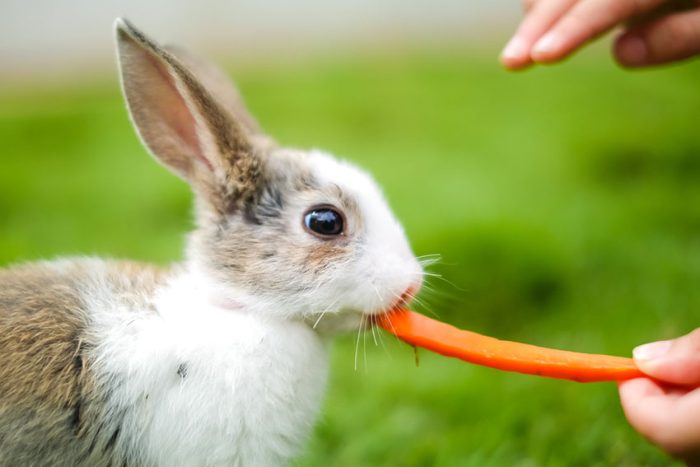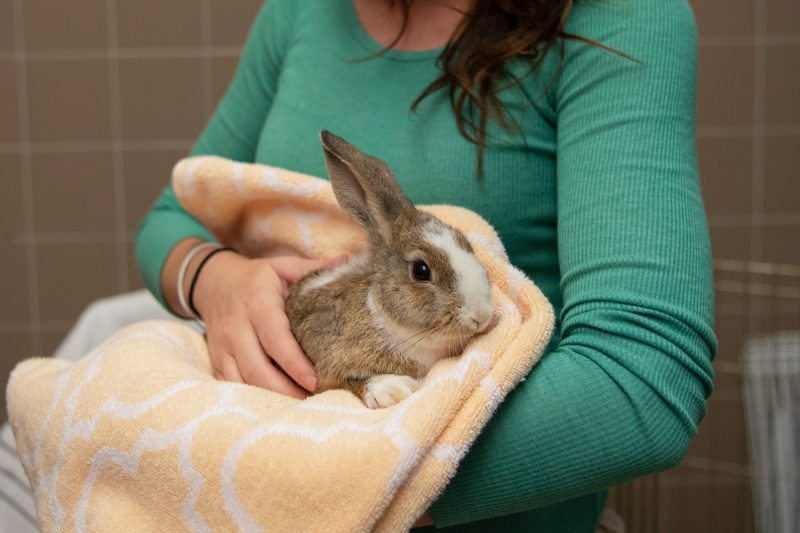Best Vegetables and Fruits For Rabbits – Throughout the world, wild rabbits successfully eat a number of different vegetation. The majority of a wild rabbit’s diet consists of various kinds of fresh, dry grasses and leafy plants. In considerably smaller quantities, rabbits will also consume the bark of trees, delicate twigs and sprouts, fruits, seeds, and other nutrient-rich foods. Knowing this is crucial when choosing a balanced food for our house rabbits.

Table of Contents
Best Vegetables and Fruits For Rabbits 2023 – [Must Read]
The primary component of the house rabbit’s diet should be grass hay (any variety). Vitamins A and D, calcium, protein, and other minerals are abundant in grass hay. Hay consumption supports strong teeth and a healthy digestive system, therefore your rabbit should always have access to it. Changing the type of grass hay or combining different hays is a wise move (such as timothy, orchard, oat hay, brome, etc). Alfalfa hay shouldn’t be used as the main source of hay since it contains a lot of calories and protein—more than the typical house rabbit needs. Alfalfa is a legume and not a grass (in the pea and bean family).
Foods That Rabbits Like to Eat
Herbs and vegetables are among the favorites of rabbits. With a few restrictions and exclusions, most supermarket greens are safe for rabbits. (See the below list of foods to stay away from.)
Adult rabbits should only receive two cups of fresh veggies per day. Only one cup of fresh vegetables per day should be given to dwarf breeds and rabbits weighing under five pounds. It’s best to choose two or three different vegetables. As previously said, rabbits have fragile digestive systems, so introduce one new vegetable at a time and keep an eye out for any indications of loose stools or diarrhea. While certain veggies can be given daily, others should only be given occasionally, such as once or twice per week.
Feeding your rabbit potatoes, maize, beans, seeds, or nuts is not advised. These meals can cause major digestive issues in rabbits since they are tough for them to digest.
Vegetables That Can Be Fed to a Rabbit Daily
Bell peppers
Bok choy
Brussels sprouts
Carrot tops
Cucumber
Endive
Escarole
Fennel
Herbs: basil, cilantro, dill, mint, oregano, parsley, rosemary, sage, thyme
Lettuces: romaine, green leaf, red leaf, Boston bibb, arugula, butter
Okra leaves
Radicchio
Radish tops
Sprouts: alfalfa, radish, clover
Watercress
Wheatgrass
Zucchini
Fruits That Can Be Fed to a Rabbit Daily
No more than 10% of the diet should consist of these (about 1 teaspoon per 2 lbs of body weight per day). NOTE: Unless otherwise specified, it is healthier to keep the fruit’s skin on (especially if it’s organic). Just wash the fruit well. Remove the fruit’s skin if you are unsure of the fruit’s origin and you are worried about the chemicals therein.
Apple (any variety, without stem and seeds)
Cherries (any variety, without the pits)
Pear
Peach
Plum (without the pits)
Kiwi
Papaya
Mango
Berries (any type)
Berries (uncooked)
Pineapple (remove skin)
Banana (remove peel; no more than about 2 1/8 inch slices a day for a 5 lb rabbit…they LOVE this!)
Melons (any – can include peel and seeds)
Star Fruit
Apricot
Currants
Nectarine
A Bunny Has an Endless Supply of Fresh Water

Finally, rabbits should always have access to fresh water, and the water should be changed every day. This is because they need to be hydrated. Every few days, wash the water container with soap and water. Bowls are preferable to water bottles since they are simpler to clean and easier for rabbits to utilize. It’s best to use a hefty ceramic dish that won’t topple over.
Concerns Regarding Gas
Some individuals worry about giving foods like broccoli that make people’s gastrointestinal systems (GI) gassy. Because a rabbit’s GI tract is different from a human’s, many foods that could make a person feel gassy do not make a rabbit feel gassy. Foods that are high in starch and sugar tend to upset the rabbit’s digestive system the most since they alter the pH of the cecum, which eventually can upset the entire system. The end consequence may be a major GI condition. Grains of any kind and legumes are known for producing GI issues in rabbits when fed improperly (beans, peas, etc). even bitter root
Related Tags: